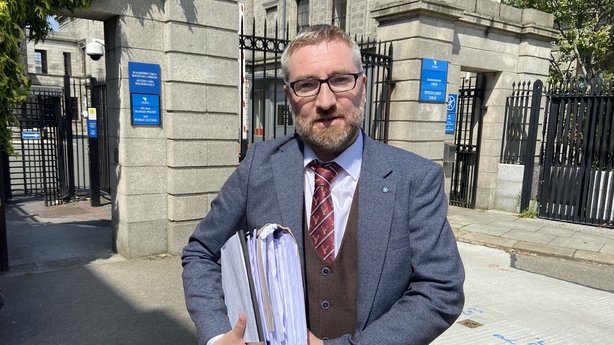The family of a 15-year-old boy, who was among the patients impacted by failings in the South Kerry Child and Adolescent Mental Health Service, has called for a full public inquiry into the matter.
The High Court today approved a mediated settlement of more than €90,000 for the boy, who was treated by CAMHS.
It was the first application involving a minor for approval of a settlement reached under a non-statutory compensation scheme, set up following a damning review of the HSE-run service.
The child, from the South Kerry region, was diagnosed with ADHD after a private assessment in May 2017 and placed on treatment.
He was referred to CAHMS in December 2017 "due to significant behavioural difficulties" in primary school.
However, in papers submitted to the court, it was claimed he was not assessed for ADHD by the doctor treating him.
The treatment the boy was earlier placed on after his private assessment was discontinued and he was subsequently prescribed a number of other medications over a period of time.
It was claimed that while he was under the care of the doctor, "therapeutic input was limited to the prescribing of medication, with inadequate monitoring of the prescribed medications to gauge the therapeutic effect or appropriate side effect and physical health monitoring".
The plaintiff's mother "did not believe the medication were having a beneficial effect" on her son and "stated the medication had made him more aggressive and caused him to lash out physically".
Barrister David Sutton told the High Court the treatment the boy received through CAMHS was "inadequate" and he said "an early intervention of ADHD could have opened up possibilities for the boy".
Under the non-statutory compensation scheme, which operates through mediation, an initial payment of €10,000 was reached, with a further €5,000 payment to cover expenses.
Mr Sutton applied to the High Court for a further €77,500 to be paid into the court until the boy reaches the age of 18.
Mr Justice Paul Coffey approved the application, which he described as a novel application.
Speaking outside the court, solicitor Dan O'Connor said the family is "happy that this chapter of their lives has now ended".

"They're happy with the mediation scheme and the way it worked."
However, he said the scheme is only designed for children affected in the South Kerry region.
Mr O'Connor said the family is calling for "a full public inquiry into all matters affecting the CAMHS situation in Kerry and beyond".
He said it "should be a full public inquiry without restrictions as to timelines or geography".
'Very unfortunate' case
The teenager at the centre of today's case was identified as a person affected by what was described in court as "the malpractice" revealed in the report, which was published in January of last year.
The Maskey Report concluded there was clear evidence that 46 children who attended the CAMHS centre in South Kerry suffered significant harm and 240 others had been exposed to the risk of significant harm.
Mr Sutton SC told the court the "very unfortunate" case before the High Court today related to issues involving misdiagnosis of ADHD and the prescribing of medication.
The boy was examined by a consultant child psychiatrist in January of this year who stated "there was a significant delay in the diagnosis of ADHD being made".
While the plaintiff was diagnosed following a private assessment in 2017, he was first referred to CAMHS in October 2013 "due to behavioural difficulties which had gotten worse" after he started national school.
An initial assessment carried out by CAMHS in January 2014 ruled out ADHD and diagnosed him as having "an attachment disorder with behavioural difficulties".
It was alleged in the proceedings against the HSE that "owing to the manner in which treatment was afforded to the Plaintiff whilst a patient of CAMHS, and in particular, owing to the manner in which medication was prescribed to the Plaintiff and owing to the failure to adequately monitor the effects of the prescribed medication to him, the Plaintiff has suffered severe personal injuries, loss and damage".
The boy was not present in court today and neither was his mother, who had taken the case on behalf of her son, whom the court was told now requires his mother’s "undivided attention".
It is expected a number of other similar cases involving minors will come before the High Court for approval of settlements reached following mediation under the compensation scheme.






